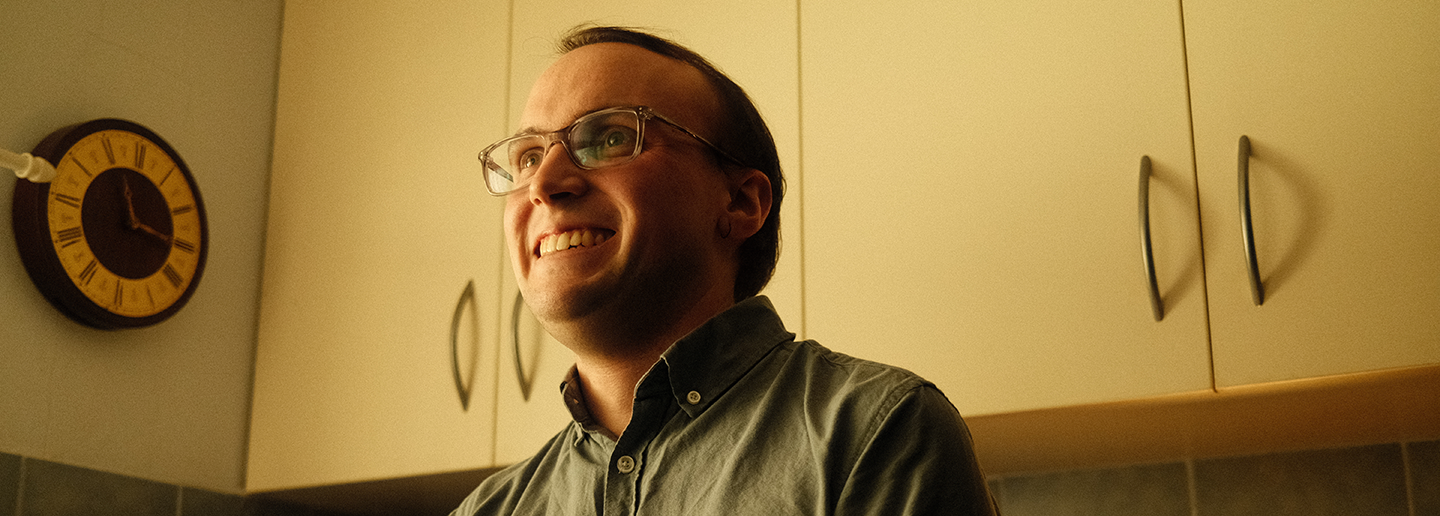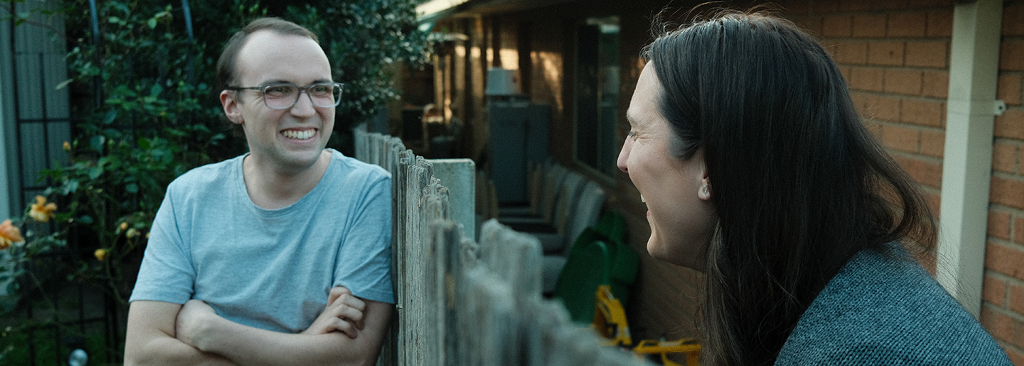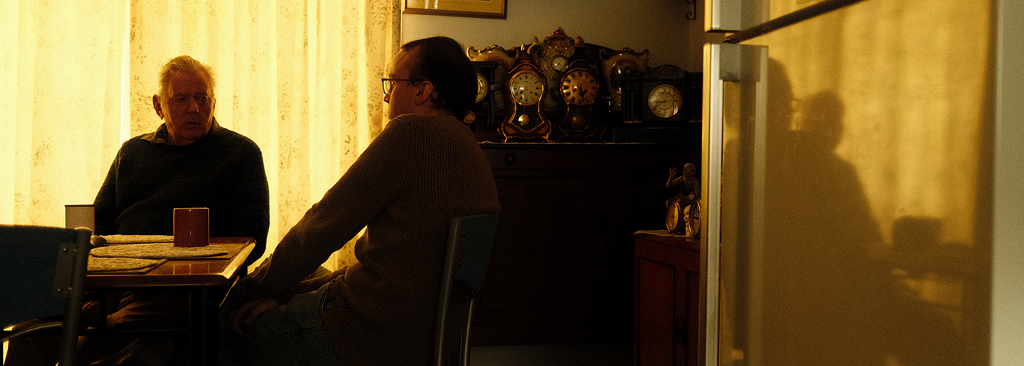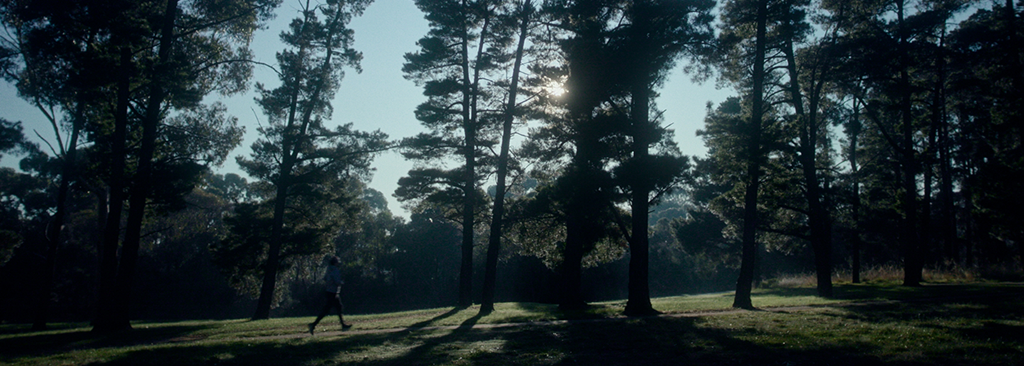“I gave up on talking” - Daniel's story
Daniel’s experience of living with a stutter and depression
After bullying saw him spend a year refusing to talk, Daniel had to learn to find his voice again.
Many people would say they know what a stutter is.
But when you ask them to explain it...
...they pause...
...they think...
...and they realise that they can’t give you an answer.
My name is Daniel Airey and I’m happy to explain what a stutter is. I’ve had one my whole life. And it’s had a significant impact on my relationships, my self-confidence and on my mental health.
Growing up with a speech impediment
Put simply, a person without a stutter will link up their breathing with their talking. They don’t have to think about it – it comes naturally.
Someone with a stutter, like me, must consciously remind themselves to breathe. For every single word.
This is something I’ve had to navigate largely on my own my whole life. There’s not much publicity around it. There were no people with talking impairments on television or in the news when I was growing up. Even today, it’s not common.
I was an awkward kid. I was anxious, struggled to make friends and would feel a sense of isolation watching others in their own friendship groups.
I had to fight hard to maintain relationships. It was a constant battle and it made me frustrated. For not being able to maintain friendships. Essentially being angry at myself for who I was.
Bullied for something I couldn’t control
Bullying throughout high school was a daily occurrence. It would follow me home in the form of social media. All night it would continue. It was a never-ending cycle.
It got to the point where I gave up on talking. There was a 12-month period where I hardly spoke. Most of the time to communicate, I’d just write things on pieces of paper or on my phone.
I had a voice but felt like I couldn't use it. It made me feel worthless. Like no one cared about what I had to say.
At the age of 16, it seemed like I was falling apart.
I felt like I was just surviving, not living.
This was around the time I had my first panic attack. My bones hurt, my body shook and my heart felt like it had stopped beating. I vomited. I heard voices telling me to do unspeakable things to myself, such as end my life.
Unfortunately, the panic attacks quickly became a daily thing, and the voices didn’t ease up. Instead, they increased.
My lowest moment was 21 June 2016. I planned for it to be the last day of my life.
The only reason I’m still here is because my mum convinced me that I am worthy, I am loved, I am respected.
I’m lucky enough to have a beautiful relationship with my mum. She is and always has been my rock.
Making tough but necessary decisions
My mum and my partner Andrew convinced me I was unwell. That I needed to get help.
I rang a clinic and booked an appointment. I was terrified. Yet by the end of my first session, I felt relieved that I’d finally been able to open up about how I was feeling.
I was diagnosed with anxiety and depression. I started taking medication and began Cognitive Behavioural Therapy (CBT), which really allowed me to get to the root of why I felt how I did and how to deal with my feelings.
I had to make some changes in my life. I made the difficult decision for my recovery to end one of my closest family relationships with a person who had been unsupportive. It was a tough choice but an essential one.
I wanted a fresh start, so I moved schools. I cut everyone from my old school off and instead focused solely on my health and wellness. In the process, I regretfully pushed away some people I loved, some who I hurt beyond the point of repair. I lost friends, some forever.
But cutting out the negative people of my life gave me space to heal, grow and strengthen as a person.
Strategies for staying in a good place
There are a lot of things I do to take care of myself. I like running, when I can block out everything else in my mind, and I’ve got a passion for sustainable fashion. I’ve also got a great support network of family and friends, who support me in all my ventures.
I still have negative thoughts but I know it’s natural. Now, I’m able to visualise all my thoughts, good and bad, as clouds in the sky just passing by.
They can be light and fluffy, or dark and horrible, and that’s OK. It just puts everything into perspective and reminds me that I’m more than my thoughts.
Recently I’ve accepted my stutter not as who I am but as a quirk. Just a small part of me.
I went a year barely saying a word and today I’m as vocal as ever.
Today, I’m living instead of just surviving.
The Beyond Blue online forums are a great way to connect with people online in a safe and anonymous environment. Sign up or log into the Forums to join a community of people who you can relate to.
If you’re going through a hard time, the Beyond Blue Support Service is available 24/7 for brief counselling. Call a counsellor on 1300 22 4636 or chat to a counsellor online.
If you're seriously injured or at risk of harming yourself right now, call Triple Zero (000) for an ambulance. For free, confidential 24/7 counselling call or chat online to Lifeline or Suicide Call Back Service. No problem is too big or small.






